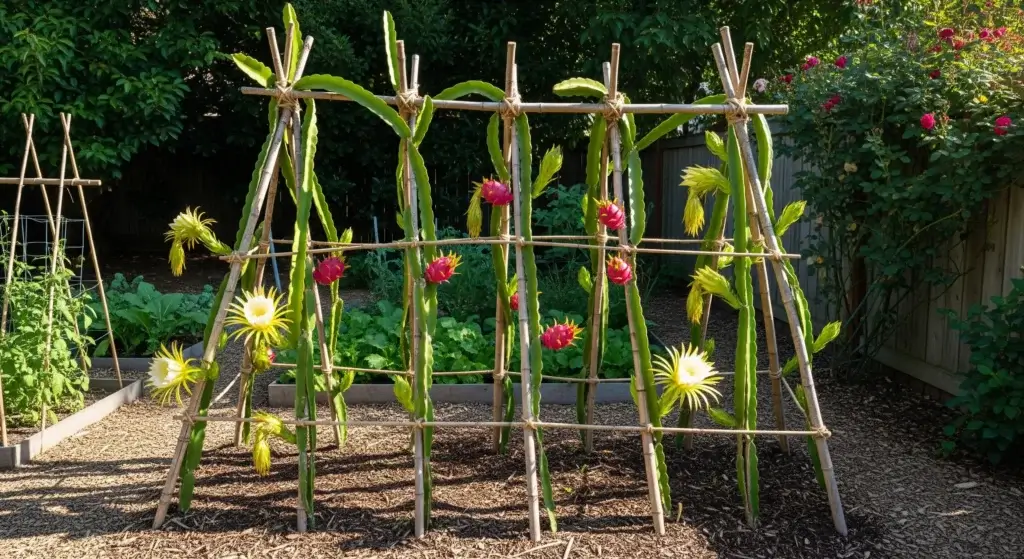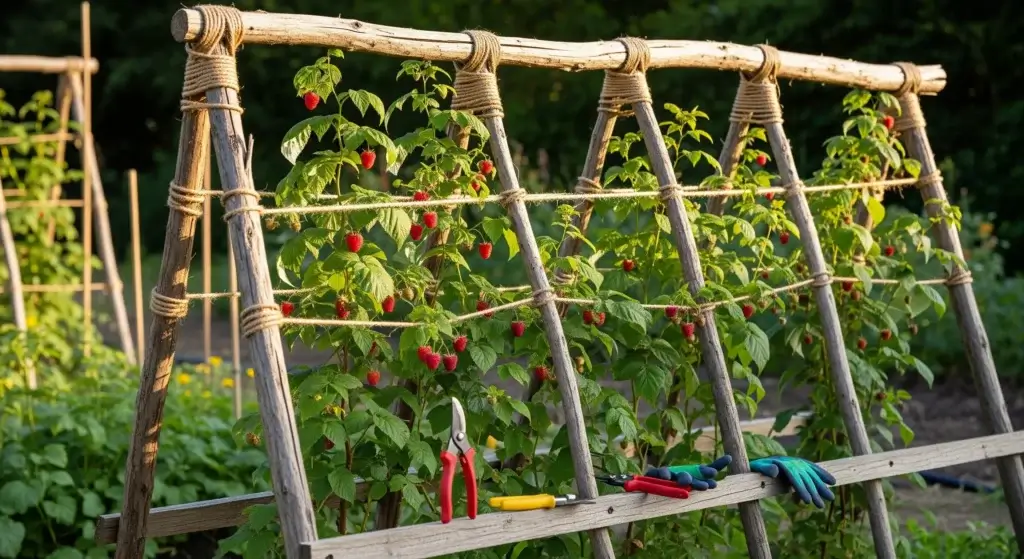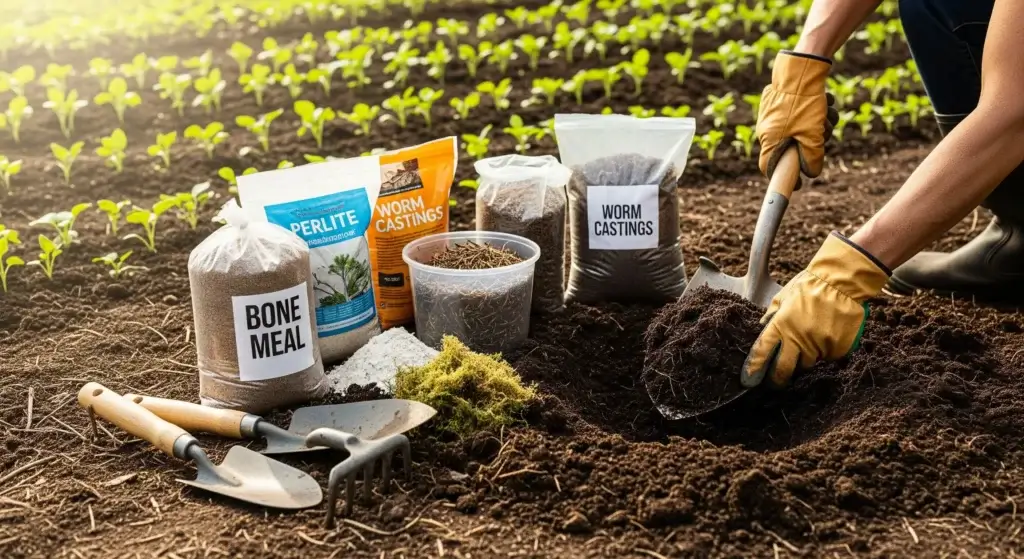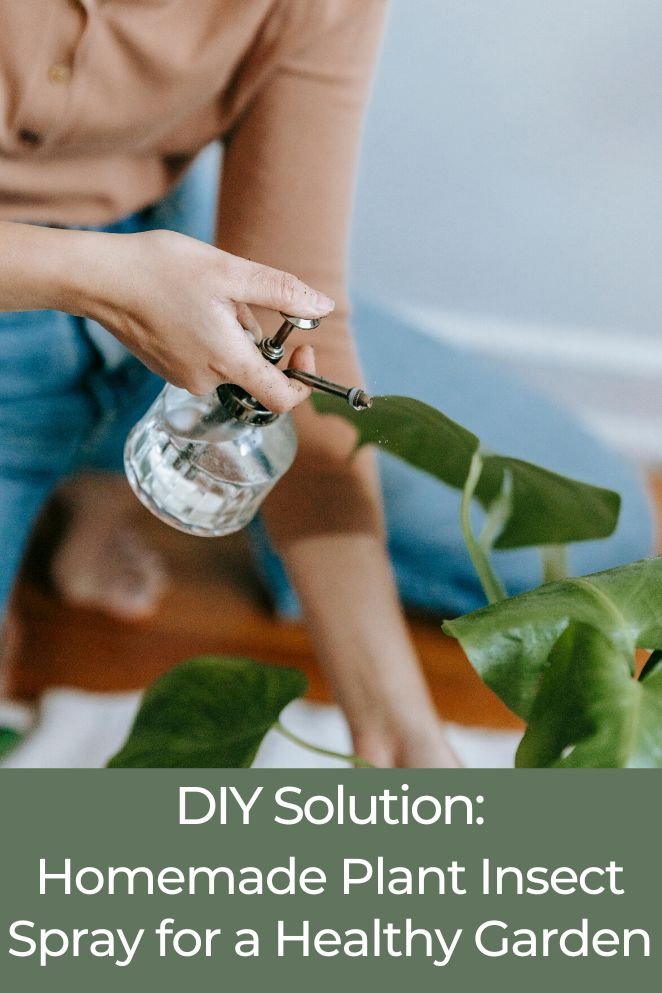
Dealing with pesky insects that harm your plants can be a real challenge for any gardener.
While there are many commercial insecticides available, they often contain harmful chemicals that can be detrimental to the environment and your health.
Fortunately, there are natural and effective alternatives in the form of homemade plant insect sprays.
In this article, we will explore common household ingredients for plant-insect sprays, provide a step-by-step guide for making and applying these sprays, and discuss their efficacy.
Say goodbye to harmful chemicals and hello to a thriving, pest-free garden with these simple and natural solutions.
Common Household Ingredients For Plant Insect Spray
The ingredients needed to make homemade plant insect spray vary, but common household items can be used to create effective and natural insecticides.
Some popular ingredients include:
- Read also: Natural Pesticides for Fruit Trees
- Read also: Ladybugs for Effective Aphid Control
Vegetable oil and dish soap
Mix 8 ounces of vegetable oil with 1 tablespoon of dish soap to concoct a basic yet potent spray insecticide.
This blend serves as a versatile solution for tackling a variety of pests.
White vinegar and water
Create a simple bug spray by combining one cup of white vinegar with three cups of water.
To enhance adherence, add half a teaspoon of dishwashing soap to the solution.
This mixture proves effective against a range of garden pests.
Neem oil
Harness the power of neem oil, a potent natural pesticide that targets a wide array of insects without harming birds, bees, or plants.
Neem oil is a versatile and eco-friendly choice for pest control.
Garlic and peppermint oil
Combine garlic, peppermint oil, and liquid soap to formulate a natural insect spray.
This mixture proves effective against aphids, slugs, snails, mealybugs, spider mites, and ants.
Embrace the botanical power of garlic and peppermint.
Dish soap
Use dish soap on its own by mixing a few drops with water to create an insecticidal spray.
This straightforward solution is easy to prepare and effective in managing various pests.
Vegetable oil
Craft a vegetable oil insecticide by mixing 1 tablespoon of mild soap with 1 cup of vegetable oil.
Add 2 tablespoons of the oil mix to 1 quart of water for a potent insect-repelling concoction.
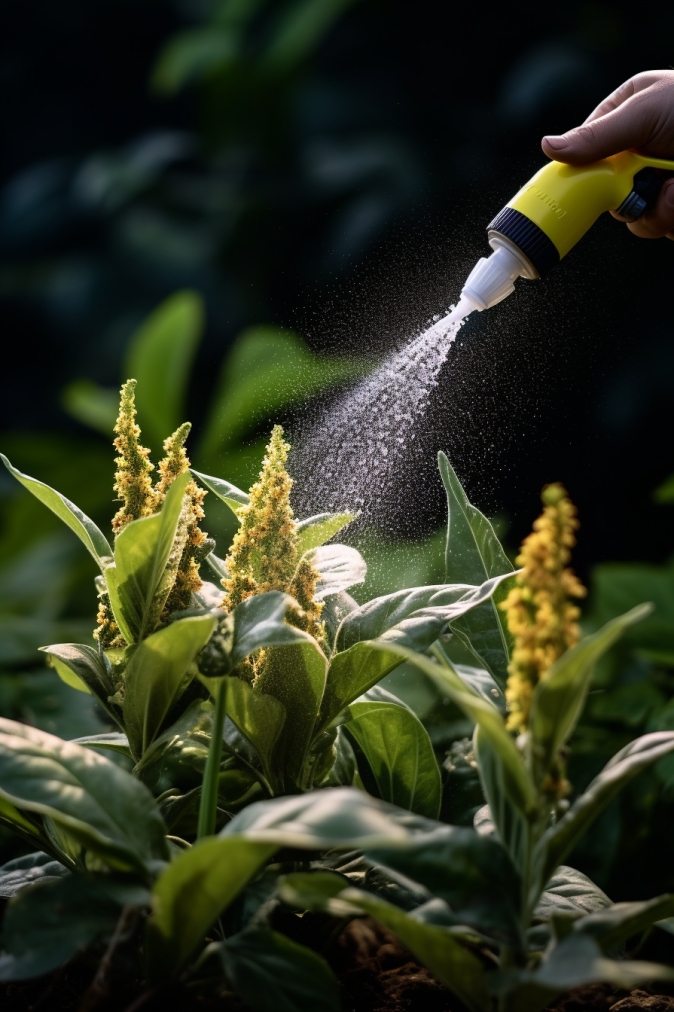
Step-by-Step Guide For Plant Insect Spray
Creating a plant-insect spray at home is a simple and effective process, requiring just a few straightforward steps.
Here’s a basic recipe to guide you through the process:
Gather your ingredients
Assemble common household items such as water and mild soap.
Depending on your chosen recipe, you might also need additional natural elements like chile powder or essential oils.
Mixing the ingredients
Take a spray bottle and combine the specified amounts of water, soap, and any other ingredients outlined in your chosen recipe.
The proportions will depend on the specific spray you intend to create.
Shake well
Thoroughly shake the spray bottle to ensure a proper and even mixture of all the ingredients.
This step is crucial to maximize the effectiveness of your homemade insect spray.
Storage
Store your concoction in a cool, dry place, away from direct sunlight.
Proper storage helps maintain the integrity of the ingredients and ensures the longevity of your homemade insect spray.
Additional tips
- Experiment with different recipes to find the one that works best for your plants and pest-related challenges.
- Test the spray on a small portion of your plant before applying it more broadly to ensure compatibility.
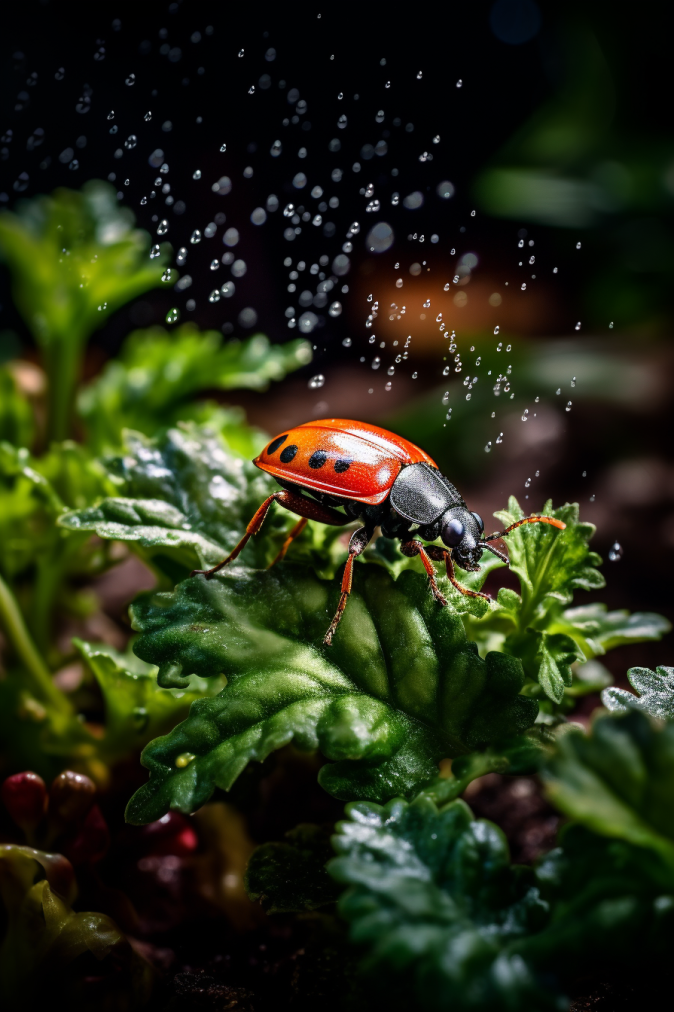
How to Apply the Spray
Once you have prepared your homemade plant insect spray, it’s important to apply it correctly to achieve the best results.
Here are some general tips for applying the spray:
Timing
Choose the right time for application, preferably in the morning or early evening.
Avoid spraying during hot, sunny afternoons to prevent potential damage to the plants.
Coverage
Thoroughly cover the affected plants, ensuring the spray reaches all areas, including the undersides of leaves where many pests tend to reside.
Adequate coverage enhances the spray’s effectiveness.
Frequency
Establish a regular spraying schedule, typically every four to seven days, or after heavy rainfall.
Consistent application is key to breaking the pest lifecycle and achieving lasting results.
Testing
Before applying the spray to all your plants, conduct a patch test.
Apply a small amount to a few leaves and wait for 24 hours to check for any adverse reactions.
This precautionary step helps ensure the spray is well-tolerated by your plants.
Additional tips
- Adjust the concentration of your spray based on the severity of the pest issue and the sensitivity of your plants.
- Consider using a fine-mist spray bottle for even distribution and better coverage.
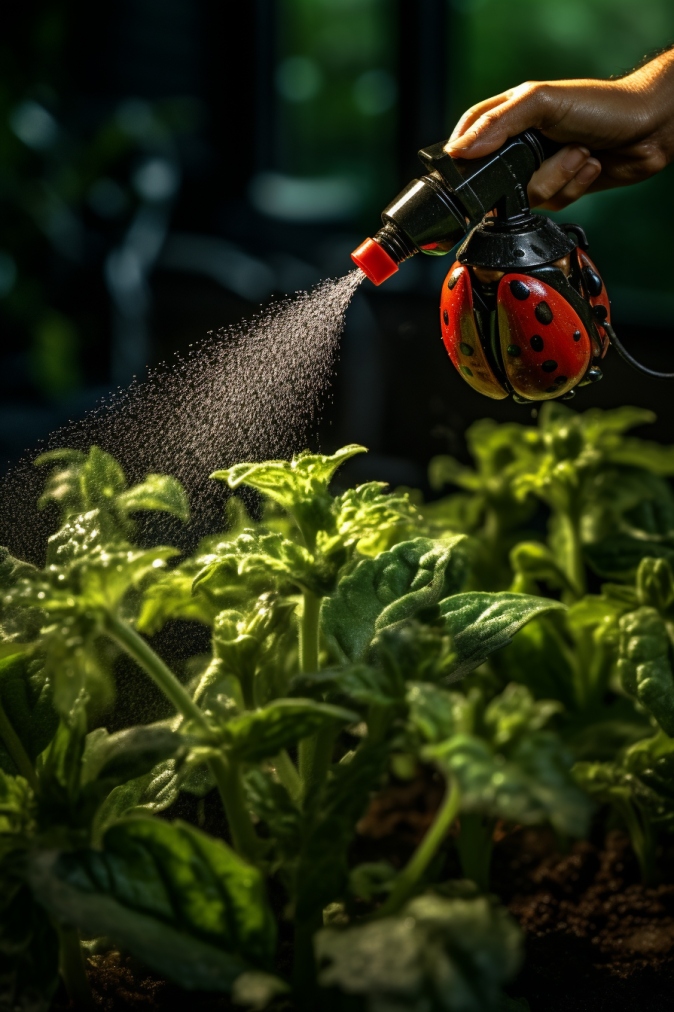
Benefits of Using Homemade Plant Insect Spray
Using homemade plant insect sprays offers several benefits, making them a natural, cost-effective, and environmentally friendly solution for pest control in your garden.
Here are some of the key benefits:
Environmentally friendly
Homemade plant insect sprays are crafted from natural ingredients, minimizing the reliance on harmful chemicals that can negatively impact the environment and wildlife.
This eco-friendly approach aligns with sustainable gardening practices.
Healthier for plants and soil
Gentle on plants and the soil, homemade sprays avoid introducing new chemicals into the ecosystem.
This preserves the overall health of your garden, promoting a thriving and balanced environment.
Safe for beneficial insects
Many homemade insect sprays exhibit selectivity, targeting only harmful pests while leaving beneficial insects unharmed.
This preservation of the natural balance in your garden supports a holistic and sustainable pest management system.
Cost-effective
Utilizing common household items in homemade insect sprays proves to be a cost-effective alternative to commercial insecticides.
This affordability makes it accessible for gardeners seeking budget-friendly solutions.
Customizable and versatile
Homemade sprays offer a high level of customization, allowing you to tailor the solution to target specific pests plaguing your garden.
This versatility ensures an adaptable approach to pest control, catering to the unique needs of your plants.
Can Homemade Plant Insect Spray Be Used on All Types of Plants?
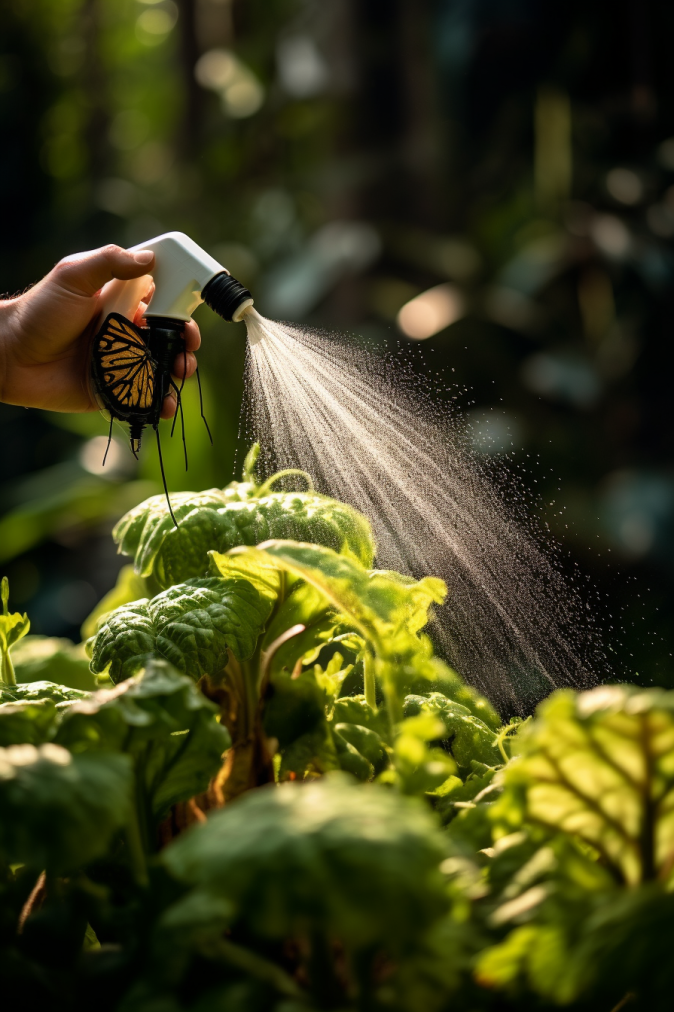
Homemade plant insect sprays can be used on many types of plants, but there are some considerations to keep in mind.
While these sprays are generally safe and effective, it’s important to be mindful of the specific plants they are applied to.
Here are some insights from the search results:
Versatility
Homemade plant insect sprays exhibit versatility and can be applied to a wide array of plants, including vegetables, fruits, and ornamental plants.
This adaptability makes them a convenient choice for overall pest control in diverse garden settings.
Caution for certain plants
While these sprays are generally safe, some caution may be advised for specific plant varieties.
For instance, certain homemade insect sprays, like tobacco spray, are recommended for most plants but should be avoided on those belonging to the nightshade (Solanaceae) family.
Being aware of such nuances ensures targeted and effective pest management.
Testing and observation
Prior to widespread application, it is advisable to conduct a small-scale test on a discrete area of the plant.
Observing for any adverse effects allows you to gauge the spray’s compatibility with the specific plant species. This precautionary step helps prevent unintended damage.
- Read also: A Guide to Organic Whitefly Control
- Read also: A Guide to Natural Pesticides for Tomatoes
Conclusion
Homemade plant insect sprays present a natural, budget-friendly, and eco-conscious approach to managing pests in your garden.
With readily available household ingredients and straightforward recipes, you can craft potent insecticides devoid of harmful chemicals.
Proper application of these sprays safeguards your plants against a variety of pests, fostering their growth and vitality.
Next time you encounter a pest infestation in your garden, consider embracing these homemade solutions for a safe and sustainable remedy.

